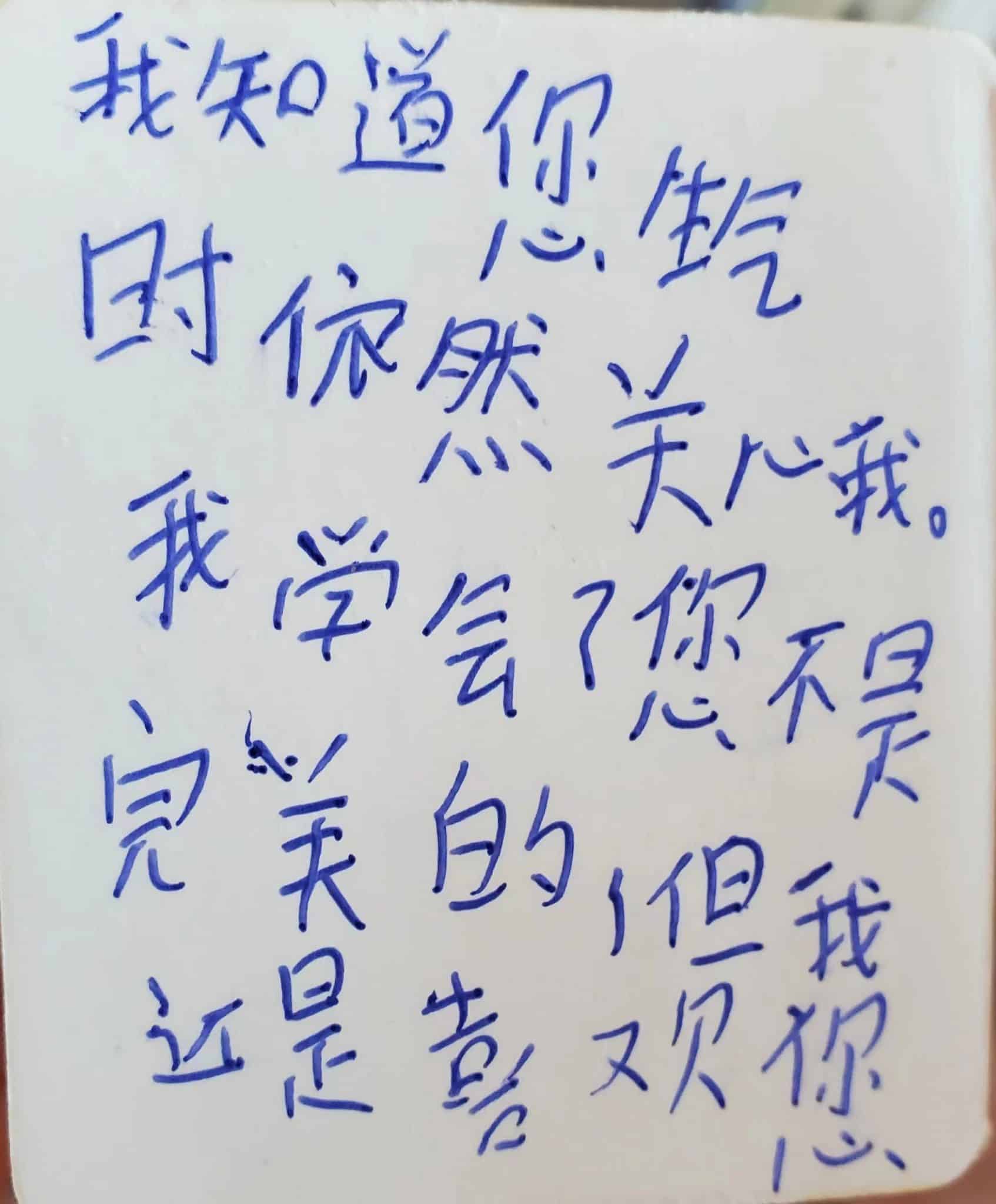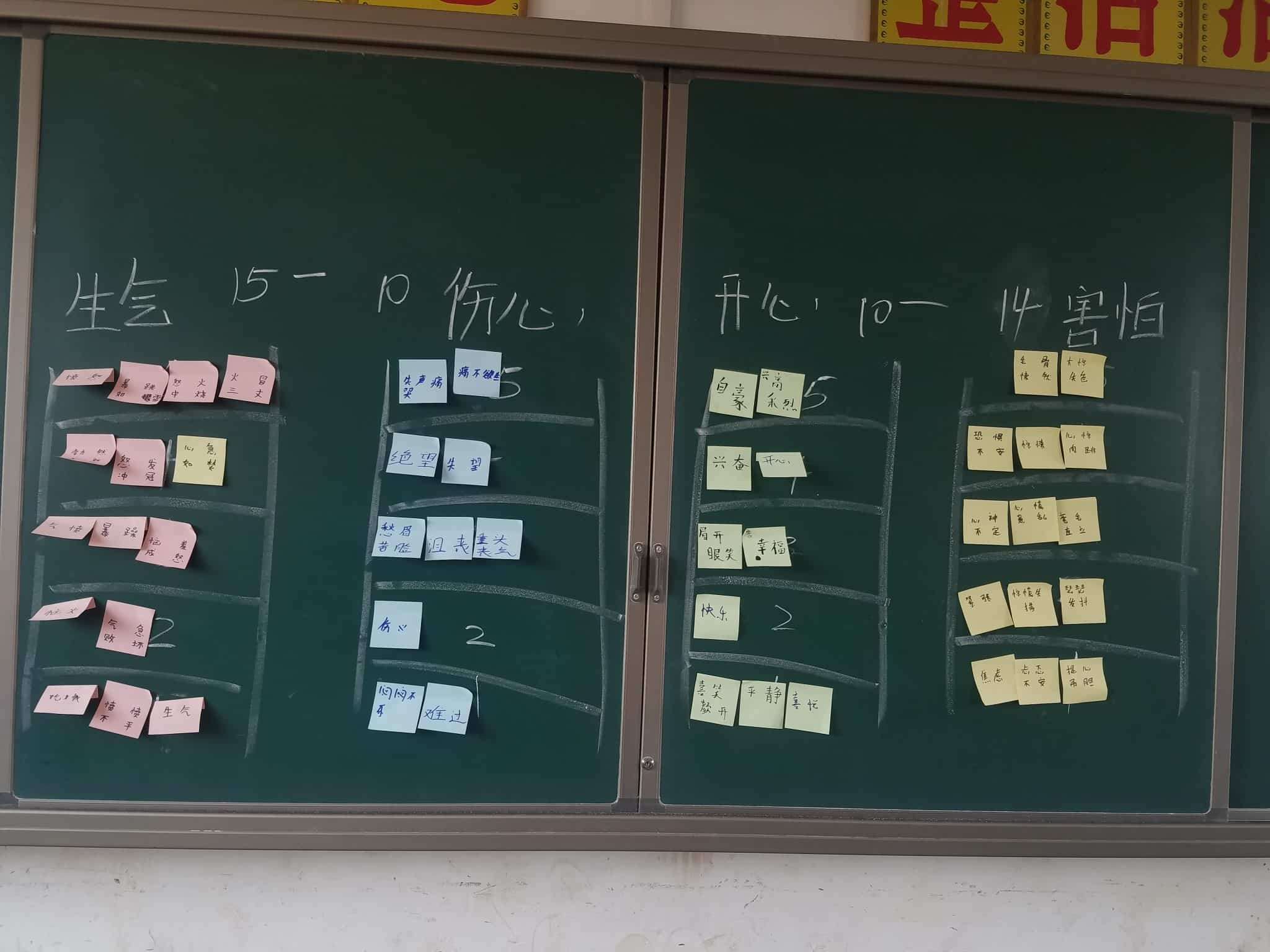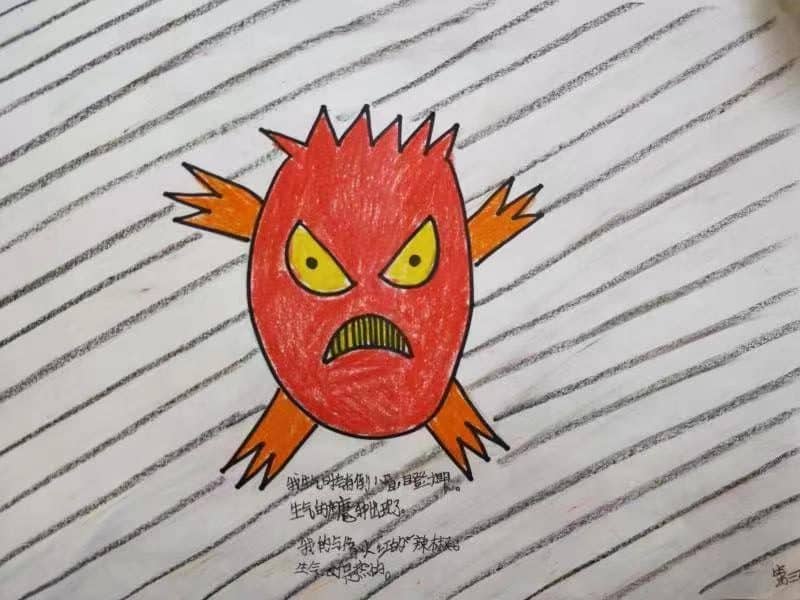Pi Pi Shi was the brainchild of Ma Libo and Yang Ruixin. Operating as a social enterprise within a registered company, the organization provides schools with curriculums to support children’s social and emotional development, with the aim of making kids more resilient and better able to handle setbacks. Pi Pi Shi is a slang word meaning “resilience”. Ma and Yang were recently interviewed by CDB.
CDB: So where did you two meet?
Yang Ruixin: We met in Dali during my first year taking part in the Teach for China program. I obtained my bachelor’s degree in applied psychology at the BNU-HKBU United International College. My experience during college made me realize what a powerful tool psychology can be for children’s development and well-being. I became determined to work in this field and we set up Pi Pi Shi together before I started postgraduate study.
CDB: What exactly motivated you to set up Pi Pi Shi and what are you hoping to achieve?
Yang: Being a caring person and wishing to contribute to the community led me to this path for sure, besides, studying psychology helped prepare me to explore this field more deeply. So following my graduation, I volunteered for the Teach for China program.
My teaching experiences helped me to see what the most essential factors are to a child’s growth and development, as well as how to make that happen.
There were kids in my class who didn’t have the motivation to study hard, there were also some who struggled with skills or how best to direct their energies. I remember this one kid, a little “trouble maker”, who liked to challenge me by speaking loudly or once even eating noodles in class. I would respond to his shouting by gently whispering “Huh? What is that you wanna tell me?” , which helped him to calm down and over time, he started to talk to me in a normal voice instead of shouting for attention. One day, a couple of months in, he nervously handed me a note that said:”why do I often feel angry?”
I loved that question, and moreover, admired his awareness and courage! It’s normal for kids at that age to have masses of energy and a desire to achieve things, which, if structurally guided, can grow into positive strengths. On the other hand, when kids lack guidance they can lack the social skills to handle conflict or dilemmas.
I was so glad I was there for those children, but it also reminded me that there were many more children who would need these tools to support them too. That drove me to proceed to make these tools into a much more accessible curriculum, and this became Pi Pi Shi. I believe that using Pi Pi Shi activities in lessons can facilitate children to cope with feelings and practice positive emotions, therefore in the long term, to build self-efficacy and resilience.

Ma: It started with my own search for the meaning of life. After many years of working with corporations, I spent two years wandering around the Indian subcontinent in the hope of finding some answers to life’s meaning in philosophy or spirituality. At the end of my quest, I felt that to “give life a meaning” was the answer — and my volunteering experiences in India led me to switch my work to the nonprofit sector. I believe that contributing to society and making the world a better place is a purpose worth living for.
I began working with nonprofit programs — mostly in providing teacher support and learning materials, until one day I realized that we had been working on responding to challenges. What if these challenges did not exist in the first place? And I thought that a positive mindset would be the key to individual growth as well as a strong community. That’s when I started to seek a way to develop children’s psychological wellbeing from a young age.
In 2017, Yang Ruixin and I met through the Teach for China program we both worked with. We found that we shared so much insight in the importance of emotional learning, and we decided to work on developing a children’s psychological wellbeing program together. We had this vision in our minds that, through carefully designed age-appropriate stories, games, paintings and sports, children can learn to understand their emotions, how to deal with them, reach out for help and collaborate with others. Kids can eventually build up a strong foundation to develop resilience and a growth mindset that will nurture them for the rest of their lives.
CDB: How exactly does it work? Is it only for rural schools?
Yang: The Pi Pi Shi curriculums and the relevant assessment tools are designed and developed based on psychology theories and our teaching experience.
For example, based on Piaget’s moral development theory, children start to learn the intentions behind behavior from the fourth and fifth grades. To facilitate their development and promote conflict-solving skills, we taught children to use the sentence “I feel…, because …, and I hope …” to enable them to communicate with and understand each other in a non-judgmental manner.
According to social-cognitive learning theory, there is a triarchic reciprocal system among environment, cognition, and behavior. Pi Pi Shi also requires teachers to change the classroom environment by using an emotion wall, which is useful to encourage children to accept their emotions. For example, when a child feels angry, he or she can write their feelings down and put a note in an envelope and attach it to the wall. As the number of envelopes on the wall grows, children’s feelings can be seen, and they start to know that everyone has positive and negative emotions. Instead of rumination and catastrophizing, they might refocus on planning and acceptance.
We use language that can be easily understood by children. For instance, when we teach children facial expressions to distinguish different emotions, we might use “sadness walnut” as an analogy for a wrinkly chin.
Ma: Pi Pi Shi provides word-by-word curriculums based on stories, games, music, painting and sports to school teachers, with some structured training. Teachers from any academic background can teach the Pi Pi Shi classes by simply following the curriculum. Meanwhile, throughout the semester, our Pi Pi Shi curriculum team also supports teachers via WeChat groups and organizes ongoing training for teachers online. The curriculum runs the pre and post-test assessment for each class that follows our curriculum, and the evaluations have shown positive growth statistically, as well as improvements in student behavior.
Pi Pi Shi is for all children, not only those in rural areas. The theory and logic behind the design is universal, although we do customize the curriculum sometimes in order to make it more accessible to children from different backgrounds. For instance, for students in rural areas, we use “Xiao Mai Bu” instead of 7-11.
CDB: What about funding?
Ma: Since we started we’ve received 11,788 yuan ($1,746) in funding, and our curriculum has been taught to around 4,000 children in nine provinces. Other than that, one organization paid us for letting them use the Pi Pi Shi curriculum, earning us 25,200 yuan in 2020. We definitely need more funding.
CDB: How do you get schools to agree to allow your course? Is it generally welcomed?
Ma: Pi Pi Shi collaborates with other organizations that have already been working with schools, and our curriculum can be integrated into their existing reading, art, or PE classes with some customized re-design. In my experience, most schools and teachers like and welcome programs for kids’ psychological well-being, although there are some funding challenges and issues with extra workloads for teachers.
CDB: What do parents think of it? And what kind of student reactions do you get?
Yang: Students often say that they will use communication strategies that they have learned while interacting with their parents. I am very curious about parent feedback actually, but I don’t get the chance to talk to parents directly. However, I do get to see Pi Pi Shi’s impact on teachers. Many report that they realize they have made mistakes before by telling children: “Don’t get angry” or “There’s nothing to be afraid of”. But now because they try to accept their feelings, even the negative ones, they find that they are more patient with their students.
Our previous evaluation, using well-established scales, showed that the Pi Pi Shi program had a statistically significant influence on children’s emotional awareness and emotion management. One student told me that her mother had had an accident and was fine now, but that she was trapped in sadness and fear and couldn’t snap out of it. I asked her what we had learned about fear and sadness and how it works. “Fear,” she said, “is because we think there’s something in the future that we can’t handle. Fear can remind you to be prepared. Sadness, perhaps because of a loss, can make you appreciate the people and things you have now.”

CDB: You say children need “social and emotional learning”. How would you define that and what are the consequences of not having it?
Yang: Social and emotional learning is a natural process which is related to a person’s relationship with themselves and others, such as regulating emotions, feelings toward others, and building supportive relationships. Children can learn it from social interactions. However, suppression, as a common emotion regulation strategy, is not very helpful in most scenarios. For affective outcomes, suppression has no impact on, or even increases, negative emotional experiences. When it comes to cognitive influence, suppression impacts a person’s working memory and the ability to process information. Regarding social effect, suppression leads to ineffective communication. That is, suppression masks emotion cues that should be received by others. Meanwhile, people who use suppression are generally less responsive to people’s social signals.
During Pi Pi Shi’s systemic training, children will practice increasing their emotional awareness and accepting their emotions by learning about different emotions. For instance, by using a game to identify their emotions, children can write “frustration” and “rage” in red ink on cards, because these emotions belong to anger and might lead to aggressive ideas. Finally, they practice coping strategies for various life challenges. For example, positive reappraisal is a strategy by which people find positive meanings in adverse events, and using this strategy is correlated with optimism and self-esteem. In the “unfortunately and fortunately game”, one child says, “unfortunately, we cannot play outside because it’s raining.” Another kid says, “fortunately, it’s cool and cozy because of the rain.”
Ma: There’s a Cognitive Behavioral Therapy model representing the relationship between actions and realities:
What happened → Thoughts ⇄ Emotions → Actions
It indicates how a person’s actions are driven by how they feel. If a person can understand what they’re going through emotionally, they are able to cope with it accordingly, therefore making the best out of each situation.
Pi Pi Shi teaches multiple perspectives on emotions: manifestations, feelings, thoughts, reasons and functions. Understanding emotions helps children make better decisions and build up positive relationships with others. At the very least, it provides children with some peace or consolation. Such a case happened in one of the teachers’ classrooms. One day a mother called the teacher about her and her child having an argument and the kid stormed out of the house without eating. Later that afternoon in the Pi Pi Shi class, the teacher was teaching the communication format for disappointment or disagreement with the expression: “I feel…because…I wish…”. That kid actually raised his hand and shared the story with his mom, moreover, he said: “Today I’m feeling sad and hurt because I had an argument with my mom. I would like to talk to her about how I feel when I go home. I hope she can forgive me and understand me better.” Here in this case, we see that the child’s behavior changed from storming out to being willing to communicate.
CDB: How exactly does Pi Pi Shi operate?
Ma: Pi Pi Shi isn’t registered as a nonprofit, it operates under a company, which was founded in December 2017. The Pi Pi Shi team includes Yang and me, the co-founders of the program. Although we both have other jobs, we make as much time as possible for Pi Pi Shi as well as using some of our own money to cover part of the running costs, since we haven’t received much funding and make almost no money from it. Our team also includes a great group of volunteers. Over the years, there have been a few dozen of them and they work with us on curriculum design, student evaluation, teacher support and subscription management. All of them share our vision and they’re extremely committed to what we do. Resilient children not only create fulfilling lives for themselves, but also contribute to cultivating a resilient community.




